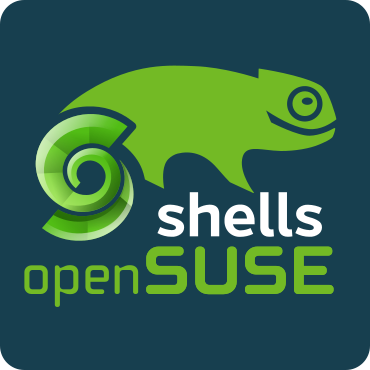Shells, openSUSE Unite with Partnership
13. May 2021 | Douglas DeMaio | CC-BY-SA-3.0

A startup bringing personal workspaces in the cloud for students, workers, coders, and creators along with a Linux project for developers, system administrators and users are teaming up to extend the use of a secure desktop from any device, anywhere.
Shells and openSUSE Project have entered into a partnership to expand the use of Shells with the availability of openSUSE distributions on Shells’ private virtual desktop environment powered by cloud computing.
“This is a great way to give an openSUSE distribution a spin - without downloading or installing anything locally,” said Gerald Pfeifer, chairperson of the openSUSE Project. “And it’s a completely new way to use a feature rich, full fledged open source-based environment from your tablet or other device.”
Shells’ CEO Alex Lee couldn’t agree more.
“We’re thrilled with the images that have been created that are now available for our customers to choose from when setting up their Shells virtual desktop,” Lee said. “It’s been a pleasure collaborating with the openSUSE team for the past few months. Both of the openSUSE and Shells tech teams have put in a lot of hard work to drive this project to completion, and it is clearly evident in the end products.
“We are honored by the fact that the group at openSUSE selected this project to work on during their SUSE HackWeek,” Lee added.
Shells has multiple use cases and openSUSE distributions are just one of many other operating systems offered by Shells. With the partnership, openSUSE will be a member of Shells Affiliate Program. The two organizations are working closely on a way to allow users to trial the distribution and its desktop environments. Further extending this partnership, Shells has become an Emerald Sponsor of this year’s openSUSE Conference and Lee will give a keynote on June 18.
Developers can rapidly spin up multiple secure environments that are automatically backed up. Music producers can access production grade programs across devices to collaborate on the next hit.
The use of Shells by educators allows for remote learning on any device, which becomes affordable, less complex for students and the accessibility and learning with the many operating systems and tools add synergy to the classroom. Students across the world can easily access openSUSE distributions on whatever device that is available to them, whether that be at school, the library or at home.
“The openSUSE leadership team has always expressed the fact that it is important to have the right tool for the right job,” Pfeifer said. “openSUSE has a lot of powerful tools. Securely accessing openSUSE and its toolset from anywhere extends the power of the distribution to the device in someone’s pocket, to a smart TV, or VR browser of a user in an instant.”
A key member of the Shells tech team involved with the collaboration is Debian developer and former Purism Chief Technical Officer Zlatan Todoric.
“The Shells and openSUSE collaboration is one of those that we all enjoy in the FLOSS community,” Todoric said, who is currently serving at Shells’ Vice President of Technology. “Sharing knowledge, ideas, and helping each other to benefit the entire community is obviously what it is all about. openSUSE is a well known integrator and has vast experience in desktop and cloud environments, and having them as an option for our Shells cloud computers is a win-win solution for everyone. The collaboration will continue to expand even further as time goes on and I can already tell you that the openSUSE experience on Shells is going to be loved.”
Disclaimer: The initial go-live images are Tumbleweed images that make it easier to adjust as the distro changes. The release team is working toward having an openSUSE Leap image.
Get your openSUSE virtual desktop here.
Media Contacts:
Alex Lee Shells.com alex@shells.com
Douglas DeMaio openSUSE ddemaio@opensuse.org
Categories: Announcements openSUSE Leap Tumbleweed
Tags: openSUSE Shells KDE GNOME Developers Open Source Cloud Virtual Desktop HackWeek TV Browser SmartTV Device use case Mobile creators coders Students Teachers Schools Education Universities Linux Computer Labs startup Partnership Purism Tools Workers